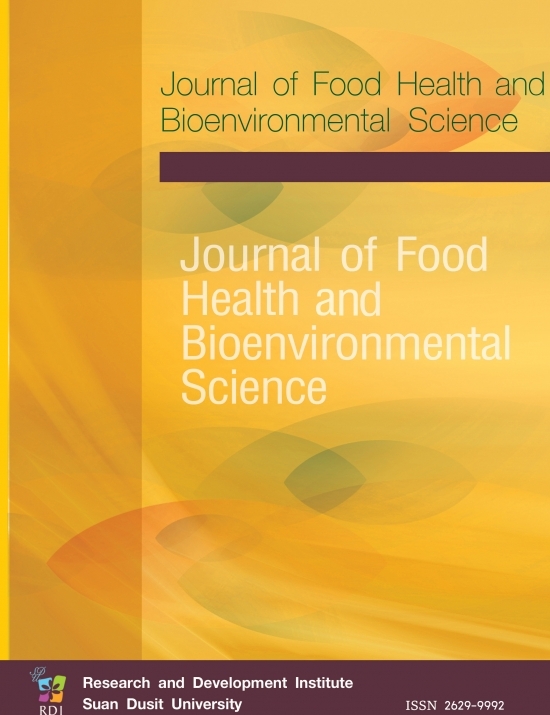Effects of Occupational Health Prevention Program among Thai Farmers
Keywords:
Occupational Health Prevention, Chlorpyrifos Safety Checklist, Blood Cholinesterase Enzyme, Chlorpyrifos ToxicitiesAbstract
The problem of inappropriate chlorpyrifos usage is an important concern for
workers who have direct exposure. The purpose of the study was to evaluate the
effectiveness of occupational health prevention program among Thai farmers, using
a quasi-experimental design with the two-groups: pre-test-post-test. The samples
consisted of 70 farmers who had mixed or sprayed CPF and used CPF spray for
more than a year and had unsafe blood cholinesterase enzyme level. 35 subjects in
each group were equally assigned by random assignment to an experimental group
and a control group, and both groups had no difference in the characteristics. Those
in the experimental group received the occupational health prevention program at
week 1, but those in the control group received the usual care. Outcomes were
measured before intervention (baseline), and at 1 and 4 weeks after intervention,
and then data were analyzed with descriptive and using repeated measures of
ANOVA testing. The findings reveal that participants in the intervention group had
improved self- protective behavior and blood cholinesterase enzymes, and
had lower symptoms. They have differed from the control group with statistical
significance (p<0.001). Thus, this program should be considered for implementation
to improve the safe use of Chlorpyrifos.








